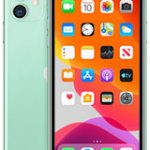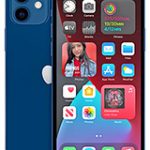Phone Network Comparison: Apple iPhone 11 vs. Apple iPhone 12
When it comes to network speed, both the Apple iPhone 11 and iPhone 12 support HSPA 42.2/5.76 Mbps and EV-DO Rev.A 3.1 Mbps. However, the iPhone 12 has an advantage as it supports LTE-A, 5G, and a higher number of LTE bands, including the 5G Sub6/mmWave network, which can provide faster internet speeds.
| Phone network Comparison | |
|---|---|
Apple iPhone 11 |
Apple iPhone 12 |
| network Speed | |
| HSPA 42.2/5.76 Mbps, LTE-A (CA) Cat16 1024/150 Mbps, EV-DO Rev.A 3.1 Mbps | HSPA 42.2/5.76 Mbps, LTE-A, 5G, EV-DO Rev.A 3.1 Mbps |
| network SIM | |
| Single SIM (Nano-SIM and/or Electronic SIM card) or Dual SIM (Nano-SIM, dual stand-by) – for China | Single SIM (Nano-SIM and/or eSIM) or Dual SIM (Nano-SIM, dual stand-by) – for China |
| 2G Network | |
| GSM 850 / 900 / 1800 / 1900 – SIM 1 & SIM 2 (dual-SIM) – for China | GSM 850 / 900 / 1800 / 1900 – SIM 1 & SIM 2 (dual-SIM) – for China |
| 3G Network | |
| HSDPA 850 / 900 / 1700(AWS) / 1900 / 2100 | HSDPA 850 / 900 / 1700(AWS) / 1900 / 2100 |
| 4G Network | |
| LTE band 1(2100), 2(1900), 3(1800), 4(1700/2100), 5(850), 7(2600), 8(900), 11(1500), 12(700), 13(700), 17(700), 18(800), 19(800), 20(800), 21(1500), 25(1900), 26(850), 28(700), 29(700), 30(2300), 32(1500), 34(2000), 38(2600), 39(1900), 40(2300), 41(2500), 42(3500), 46, 48, 66(1700/2100) – A2221 | 1, 2, 3, 4, 5, 7, 8, 12, 13, 14, 17, 18, 19, 20, 25, 26, 28, 29, 30, 32, 34, 38, 39, 40, 41, 42, 46, 48, 66, 71 – A2172 |
| 5G Network | |
| 1, 2, 3, 5, 7, 8, 12, 20, 25, 28, 38, 40, 41, 66, 71, 77, 78, 79, 260, 261 Sub6/mmWave – A2172 | |
| Network Review | |
| Review Apple iPhone 11 Network Review | Review Apple iPhone 12 Network Review |
Related for Apple iPhone 11 |
Related for Apple iPhone 12 |
In terms of network SIM, both phones offer a dual-SIM option. However, the iPhone 12 also has an eSIM option, which can be useful for users who frequently travel.
Both phones support 2G and 3G networks, with the iPhone 11 and iPhone 12 supporting GSM 850 / 900 / 1800 / 1900 – SIM 1 & SIM 2 (dual-SIM) – for China and HSDPA 850 / 900 / 1700(AWS) / 1900 / 2100.
When it comes to 4G networks, the iPhone 11 supports LTE bands 1(2100), 2(1900), 3(1800), 4(1700/2100), 5(850), 7(2600), 8(900), 11(1500), 12(700), 13(700), 17(700), 18(800), 19(800), 20(800), 21(1500), 25(1900), 26(850), 28(700), 29(700), 30(2300), 32(1500), 34(2000), 38(2600), 39(1900), 40(2300), 41(2500), 42(3500), 46, 48, and 66(1700/2100). The iPhone 12, on the other hand, supports 1, 2, 3, 4, 5, 7, 8, 12, 13, 14, 17, 18, 19, 20, 25, 26, 28, 29, 30, 32, 34, 38, 39, 40, 41, 42, 46, 48, 66, 71 – A2172.
The iPhone 12 also has an advantage in terms of 5G networks, supporting 1, 2, 3, 5, 7, 8, 12, 20, 25, 28, 38, 40, 41, 66, 71, 77, 78, 79, 260, 261 Sub6/mmWave – A2172.
Overall, the iPhone 12 has a better network connectivity with support for both 5G and more LTE bands. However, the iPhone 11 still provides a reliable network connection for users who do not have access to 5G networks. It is important for consumers to consider their location and network requirements when choosing between the two phones.
Full Specs Comparison For Apple iPhone 11 vs Apple iPhone 12







